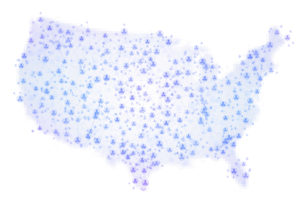** Shipping and Handling Case Dismissed in California – Beginning of the End? **
By: Brent E. Johnson

Lately, there’s been quite a bit of buzz over a couple of lawsuits filed in California alleging that internet retailers are charging too much for shipping and handling: Reider v. Electrolux Home Care Products, Inc., No. 8:17-cv-00026-JLS-DFM (C.D. Cal) and McCoy v. Omaha Steaks International, Inc., No. BC 658076 (Cal. Sup. Ct, L.A. Cnt’y). Much of the reporting on these cases focuses on the possibility that this claim may be the next big thing in consumer class actions. How likely is that?
The answer, of course, is “Who knows?” But a closer inspection of the lawsuits suggests that this litigation too shall pass — and perhaps quickly. First, both lawsuits were filed by Scott J. Ferrell, the founder of Pacific Trial Attorneys, who is no stranger to consumer class actions against online retailers having brought several under California’s Automatic Renewal Statute. California Business and Professions Code §17600, et seq. But there hasn’t yet been a break out of these shipping and handling cases. And second, the Electrolux action is over via a joint stipulation to dismiss filed just yesterday after the District Court granted Electrolux’s motion to dismiss with the observation that any attempt to amend would likely be futile. Dkt. No. 30, May 8, 2017.
The plaintiff in Electrolux pursued a novel theory of liability in a case where it was undisputed that he was apprised of the shipping charges prior to purchase. Indeed, there was no way plaintiff could have missed the disclosure because he had to actually choose between shipping options with different charges at the time of purchase: Ground Service at $7.99; Second Day Air at $15.00; and Next Day Air at $25.00. (He judiciously chose ground service given his purchase was for a $1.99 vacuum bag.) Faced with those facts, plaintiff honed in on the unfair prong of California Business & Profession Code § 17200, which prohibits and makes actionable “unlawful, unfair or fraudulent” business practices.
While California courts have not addressed the unfair prong in consumer lawsuits, the Ninth Circuit has – holding that for a business practice to be unfair to consumers it must either: (1) violate a “legislatively declared” policy; or (2) fail a balancing test that weighs the benefit to the company against the harm to consumers. Lozano v. AT&T Wireless Servs., Inc., 504 F.3d 718, 736 (9th Cir. 2007). In Electrolux, the plaintiff argued that the guidelines of the Direct Marketing Association (“DMA”) that encourage retailers to make sure that their shipping and handling charges bear a reasonable relationship to the actual costs of shipping and handling and a 1980 FTC consent order prohibiting a car dealer from charging more than its actual costs in shipping cars to its showroom reflect a public policy against excessive shipping and handling charges and show that the balance tilts to consumers.
The District Court disagreed. Dkt. No. 27, April 21, 2017. The “legislatively declared” policy was an easy call – neither the DMA nor the FTC are legislatures. On the balancing test, the District Court found that there was simply no harm to the plaintiff and, therefore, nothing against which to balance Electrolux’s benefit. Striking a blow for free markets everywhere, the court observed, “Online shoppers are aware that online merchants are in the business of making money and generating profit, and those looking for the best deals will find their way to the merchants who offer the best combination of quality, price, and service.” In what should become known as the “Mini Bar Rule,” the court cited Searle v. Wyndham Int’l, Inc., 102 Cal. App. 4th 1327, 1330 (2002) – a case where plaintiffs unsuccessfully challenged a hotel chain’s mandatory 17% service charge:
“Perhaps the best analogy is the one made in Searle. The hotel room guest knows he could buy the $3 minibar candy for less at a neighborhood store. Perhaps he pays the high price so he can stay in his comfortable robe and enjoy the high-priced, in-room movie. In any event,“[t]he minibar patron, like the room service patron, is given both clear notice the service being offered comes at a hefty premium and the freedom to decline the service.” Searle, 102 Cal. App.4th at 1334.” (Dkt. No. 27 at 6).
The District Court in short order dispatched plaintiff’s Consumer Legal Remedies Act claim that the practice of charging inflated shipping and handling fees is deceptive because consumers believe that the charges are reasonably related to the company’s actual costs by noting that Electrolux makes no such representation.
But what of the second shipping and handling charge case — McCoy v. Omaha Steaks International, Inc., CA Sup. Court, County of Los Angeles, Case No. BC 658076? That case was filed in Los Angeles Superior Court on April 14, 2017 – a week before the District Court’s decision in Electrolux. The claims are the same. The support is the same. We’ll have to wait and see if the superior court and the federal court agree.



 We’ve recently posted regarding the pushback state high courts have been giving the Supreme Court’s recent decisions regarding the primacy of the Federal Arbitration Act over state laws that restrict private arbitration agreements.
We’ve recently posted regarding the pushback state high courts have been giving the Supreme Court’s recent decisions regarding the primacy of the Federal Arbitration Act over state laws that restrict private arbitration agreements.
